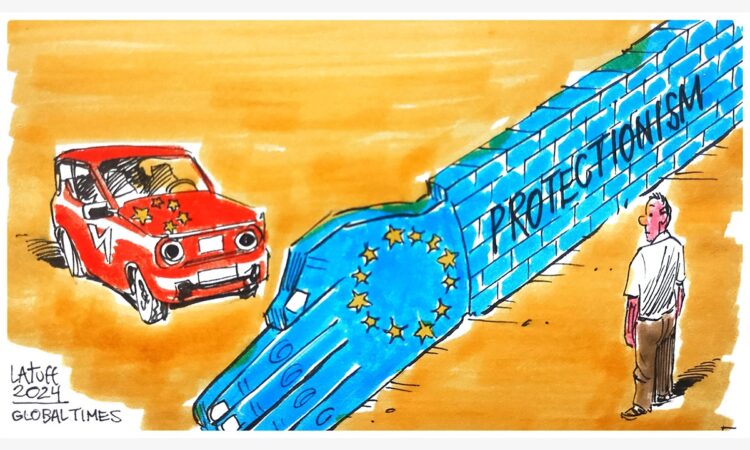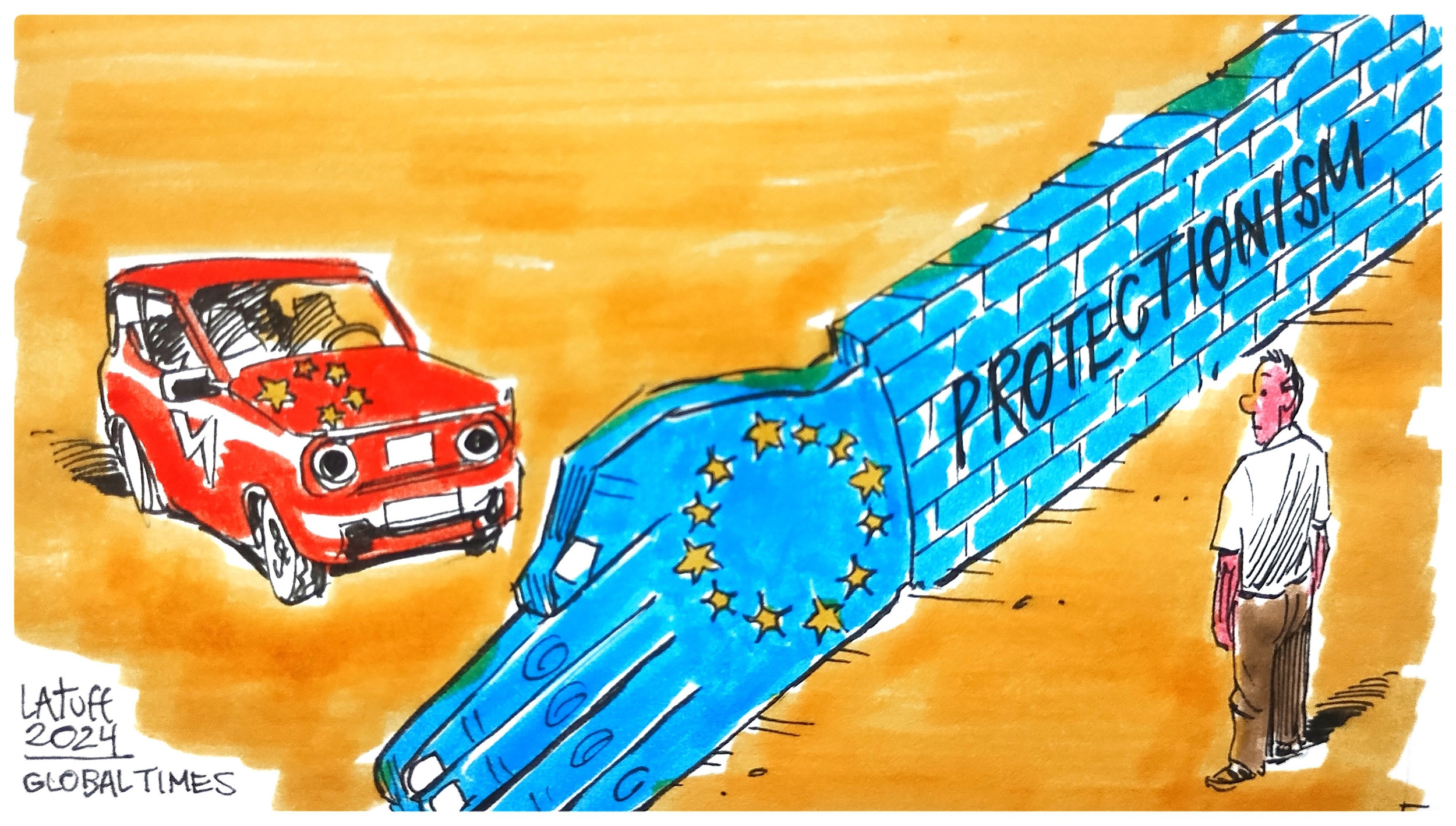Germany’s potential abstention in EU vote on tariffs for Chinese EVs may inject uncertainty, sway undecided members: experts


Cartoon: Carlos Latuff
Chinese experts said on Saturday that Germany’s expected abstention would inject uncertainty into the European Union’s vote on imposing provisional tariffs on China-made electric vehicles (EVs) as the move of the bloc’s biggest economy is expected to sway undecided member states. Experts also urged the bloc to engage in consultations with China in a pragmatic way, avoiding politicizing trade and potential backlash on its industrial development.
Germany is set to abstain in Monday’s vote, which marks the first test of support for the EU’s landmark trade case, Reuters reported on Saturday citing sources.
The European Commission (EC), the EU’s executive arm, has confirmed provisional tariffs on Chinese EV makers starting July 5, despite strong opposition within the bloc. However, a final decision on definitive duties will require a vote by EU member countries.
Experts noted that Germany’s potential move signifies support for further tariff consultations with China to seek solutions accepted by both sides, as the final imposition of the tariff will greatly harm EU automakers’ global competitiveness and hinder its overall effort toward a green transition.
“Germany, a key EU member, could significantly influence other member states’ decisions with its stance and policy choices,” Zhang Jian, a vice president of the China Institutes of Contemporary International Relations, told the Global Times on Saturday, saying that Germany’s stance could sway undecided countries towards either adopting similar measures or opposing the tariffs.
According to an informal poll conducted by Reuters among EU governments, a majority of countries are currently deliberating on the pros and cons of the escalating trade dispute.
Since the EU announced plans to impose tariffs on Chinese EVs, the protectionist move has faced widespread opposition. Recently, European leaders and businesses have criticized the tariff hike, emphasizing its significant harm to the European auto industry, consumers, and progress toward carbon neutrality.
In stark contrast to the EU’s unilateral actions, China’s Ministry of Commerce said on July 8 that China has consistently advocated resolving frictions through dialogue and consultation to prevent the escalation of trade tensions, and urged Europe to show good faith and accelerate the negotiation process to achieve a mutually acceptable solution as soon as possible.
Zhang noted the strong voices within the EU calling for prompt negotiations with China, as the bloc is grappling with a range of economic challenges, which require seeking external market support and maintaining normal economic and trade relations with China.
“Therefore, there remains a significant potential of both sides reaching a certain degree of compromise to help avoid the worst-case scenario,” Zhang said.
After the recent advisory vote, EU members will also vote in October on whether the Commission should propose multi-year tariffs after its investigation. These tariffs would be blocked if a “qualified majority” of at least 15 countries, representing 65 percent of the EU population, vote against them, according to media report.
Experts warned the EU over politicizing economic issues, or risk declining industrial competitiveness and rising economic stagnation, urging it to re-examine its trade policy towards China by pushing pragmatic bilateral dialogues in the coming months.
Mustafa Hyder Sayed, executive director of the Pakistan-China Institute, told the Global Times on Friday that Western countries’ hegemonic actions are yet another attempt to contain China’s peaceful rise, which he said will not succeed but rather harm global economic growth.






